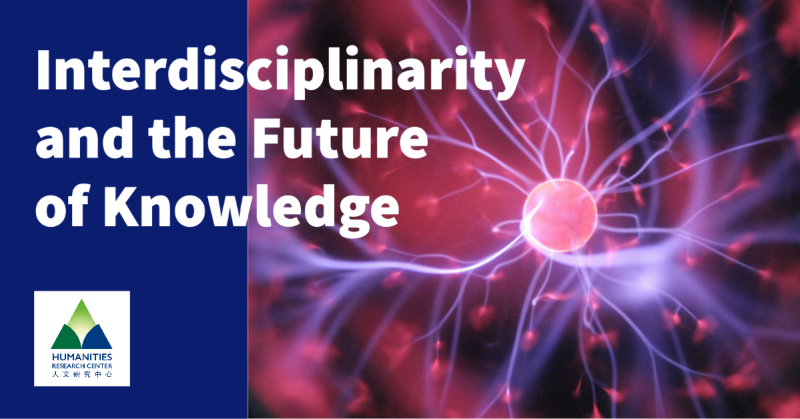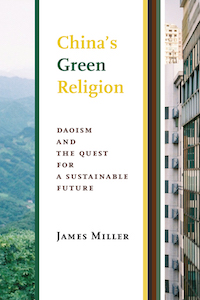The following article was first published in Religion Dispatches on December 15, 2014.
In last week’s column here on Religion Dispatches, Ivan Strenski argued strongly against American Academy of Religion President Laurie Zoloth’s call for religious studies to be “interrupted” by a focus on climate change, writing that “asking a religious studies professor to do something about climate change is absurd, or at the very least, peripheral.” He goes on to pose an important question for all branches of academy study: “Must every discipline have some significant contribution to make to every social problem we face?”
Of course climate change is not just any ordinary problem. Indeed as Evan Berry, quoting Mike Hulme, notes in his rejoinder to Strenski, climate change is “not so much a discrete problem to be solved as it is a condition under which human beings will have to make choices.” The question then becomes, what is the responsibility of higher education to prepare students to make responsible choices under this unprecedented condition?
In short, climate change is a game-changer for the whole of higher education. Laurie Zoloth realizes this, but Ivan Strenski does not.
Strenski advocates a model of higher education rooted in the disciplines of the 19th century. In this model the goal of a religion department is principally to train scholars of religion and not to engage in social activism. The same would be true for economics or physics departments: to train more economists and physicists. From this perspective disciplinary education is an end in itself and does not need to be oriented instrumentally towards some social goal.
But as universities have become providers of education for the masses of advanced societies, the narrow goal of disciplinary education is no longer fit for purpose. The academy does not need thousands of economists or physicists to keep these disciplines going; we need only a small number of brilliant minds. And yet the academy, because of its conservative disciplinary nature, insists on training legions of economists, religionists and physicists. If graduates of these programs find themselves able to enter the workforce or engage in responsible democratic citizenship, they do so in spite of their disciplinary education, not because of it.
In short the 19th century model of disciplinary education risks a staggering waste of talent at a time of global crisis. No wonder many people are wondering whether it is worth it to invest tens of thousands of dollars and four years of their lives majoring in the traditional disciplines.
In 2050 the world’s population will reach 9-10 billion, and much of its economy will be driven by hyper-dense, increasingly multi-ethnic, environmentally challenged megacities of up to 100 million people. No current economic system, scientific thought, cultural value system or political philosophy on its own has relevance for this new world. The key problems of the 21st century demand holistic thinking, multidisciplinary education and cross-cultural communications. These problems include:
- How do we develop the economy for a world of 9-10 billion people in 2050 without destroying the ecosystems and environments that make life possible?
- How do we discover the appropriate place for cultural differences in a multipolar, hypermodern world without resorting to fundamentalism, separatism, and ethnic violence?
- How do we foster meaningful human relations and quality of life in a world transformed by science and technology?
The current disciplinary education model risks failing to prepare the next generation for the world that they will actually live in. For universities to safeguard the status quo is to risk their social legitimacy, and to risk disastrous consequences for the West’s future prosperity, not to mention humanity as a whole.
From this perspective, AAR President Zoloth’s demand for scholars of religion to imagine how their discipline can contribute to forming responsible citizens in a time of climate crisis is a master stroke. It immediately gives purpose and relevance to the thousands of students who are majoring in religious studies. It asks them to consider how their studies of Buddhism or Christianity will help them negotiate a world whose climate is changing rapidly and without precedent. It asks them to make a creative leap across disciplinary boundaries. It asks them to apply their knowledge to the problems of the real world.
Surely it is far more important that thousands of young people can think critically about the nexus of religious worldviews, values and politics that shapes the diversity of the world’s responses to climate change, rather than the religious ideas of Medieval Chinese Daoism (which is how I began my academic career)!
Ivan Strenski is right that the discipline of religion needs scholars who are purely focussed on the academic problems of religion. But this is not what the vast majority of undergraduates needs; it is not what our society needs; and it is not what the planet needs.
If ever there was a time when our disciplines should serve the future needs of our students, and not the other way around, it is now. While I sympathize with Ivan Strenski’s call for academic departments to advance pure academic knowledge about their fields, now is not the time to prioritize this function of higher education. Laurie Zoloth’s call for radical interdisciplinary social engagement is timely, urgent, and a model for other disciplines to follow if our universities are to prepare students for the world of 2050 and beyond.
First published in Religion Dispatches, December 15, 2014.


